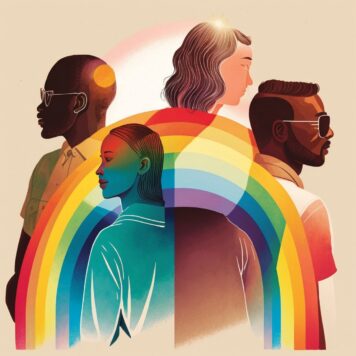In 2010, the Council of Europe adopted Recommendation CM/Rec(2010)5, a landmark instrument to combat discrimination based on sexual orientation and gender identity. This non-binding yet soft law measue outlines measures for Member States to protect LGBTIQ rights. Following reviews in 2013 and 2018, the current report contributes to the third pan-European assessment, focusing on Lithuania’s implementation as part of a broader effort to achieve full compliance across all Member States.
The National LGBT Rights Organization LGL has contributed to comprehensive CSO report on the Recommendation’s implementation which will be published by ILGA-Europe’s. LGL’s findings reveal a complex landscape of LGBTIQ rights in Lithuania, highlighting both minor advancements and significant ongoing challenges:
- Legal Protections: Gender identity and expression lack explicit protection, leaving transgender individuals vulnerable to discrimination.
- Gender Recognition: The current process, requiring medical diagnosis and court approval, falls short of accessibility and self-determination standards.
- Same-Sex Partnerships: No legal recognition exists for same-sex couples, with slow progress and proposed laws inadequately addressing LGBTIQ needs.
- Asylum Procedures: Discriminatory treatment and insufficient assessment of individual needs, especially for LGBTIQ persons with intersecting identities, remain problematic.
- Healthcare: New protocols for transgender healthcare are criticized for lack of coverage and inaccessibility, particularly for vulnerable groups. Gender-affirming surgeries are virtually unavailable, and hormone treatments are not reimbursed.
- Education: Significant barriers to LGBTIQ-inclusive education persist, exacerbated by the ‘anti-gay propaganda’ law restricting LGBTIQ-related information in schools.
- Intersectionality: Limited data on gender identity and expression hinders addressing issues faced by LGBTIQ individuals with multiple marginalized identities.
- Hate crime: Significant gaps in Lithuania’s hate crime response, including underreporting, lack of specialized law enforcement units, inadequate training, poor classification of incidents, insufficient victim support, and failure to address intersectionality, particularly for LGBTIQ victims.
LGL’s contribution emphasizes the need for more systemic and sustainable approaches to address LGBTIQ discrimination, rather than what they perceive as sporadic efforts. This assessment highlights the disparity between government reports and civil society perspectives, underscoring the ongoing challenges in achieving full LGBTIQ equality in Lithuania.
Recommendations: LGL proposes several key recommendations, including:
- Introducing legislation to recognize the rights of same-sex families
- Developing comprehensive policy documents to combat discrimination against LGBTIQ people
- Designating gender identity and expression as protected characteristics in relevant legislation
- Revising the Law on the Protection of Minors to prevent censorship of LGBTIQ-related information
- Strengthening hate crime and hate speech legislation and victim support mechanisms
- Reviewing asylum procedures to better assess the needs of LGBTIQ asylum seekers
- Ensuring participation of LGBTIQ organizations in key initiatives and decision-making processes




